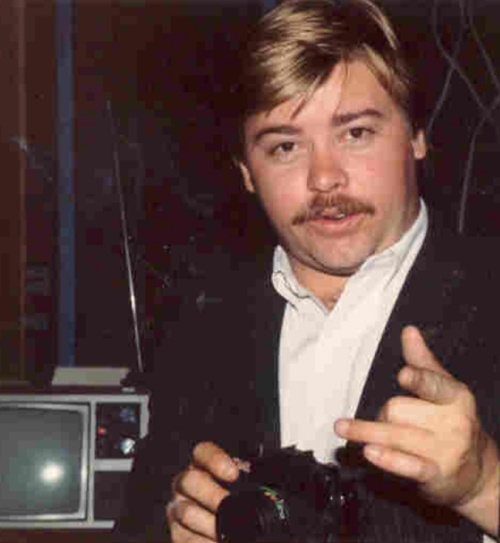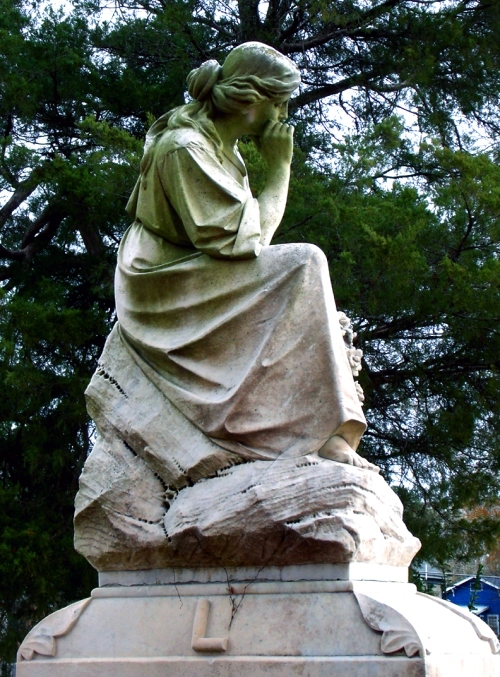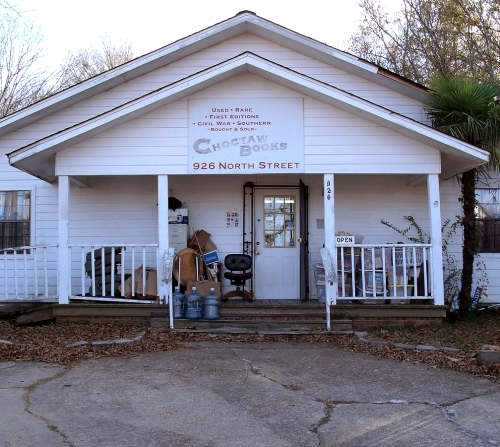Mockbee Home
Eulogy for Tom
For those of you who knew Tom well, it should come as no surprise that he left very specific and detailed instructions to the conduct of his funeral; in three single-spaced typewritten pages, Tom covered everything from boutonnieres to backhoes. We have done our best to adhere to his wishes, but I can’t help but feel that he’s somewhere taking notes on our shortcomings.
I’m sure we’ll all catch hell for it one of these days.
Tom wanted words from the heart, but he qualified those as well, wanting me to speak about what set him apart from what he called “the rest of the human herd”. This is why I began by mentioning his exhaustive instructions for this ceremony, because they serve to illustrate the most essential element of Tom’s nature.
Tom Yancy was a perfectionist in an imperfect world. Somewhere along the way, he decided that whoever was in charge of the production was fucking everything up, so he set about putting things right. From his father, Tom inherited a passion for order; from his mother, an accentuated sense of propriety. These were his primary resources in a war against a world filled with sloppy architecture, bad beauty show contestants and other violations against his impeccable and justifiable standards. His epic indignation was a bar by which I and others set our own standards against the dictates of reality .
Tom declared–I don’t think Tom ever really “said” anything–that I read a selection of literary passages, but these three pages of addenda (for that is what they were) have been lost in a tragic act of negligence on my part, so I’ve elected to read a passage by Tom’s favorite author, Eudora Welty. Tom loved Welty because, like him, she was interested in the foibles and eccentricities of people, the quirks of character that make us stand out in what Tom called a herd of humanity of which he was an errant, beguiling shepherd.
“The funeral was what you’d expect if you’d ever seen Polk—crowded. It was hot as fluzions in that little front room. A lot of Jacob’s-Ladder tops and althea blooms sewed on cardboard crosses, and a saliva wreath with a bee in it. A lot of ferns hauled out of creek bottoms and drooping by the time they got ready for them. People, people, people, flowers, flowers, flowers, and the shades hauled down and the electricity burning itself up, and two preachers both red-headed; but mainly I felt there were Peacocks. Mrs. Peacock was big and fat as a row of pigs, and wore tennis shoes to her daughter’s funeral—I guess she couldn’t help it.”
Like Welty, Tom enjoyed telling stories about people; but like his father he also loved to hear stories about himself. I implore you all to go from here and tell your tales of this wonderful, wonderful man.
Senate Chamber Rotunda
Bilbo
Hardy Crypt
Angel L
Choctaw Books on North Street
Paying Our Dues to the Blues
The blues have shaped American music for over a century, and many people the world over consider blues music Mississippi’s greatest contribution to global culture.
In recognition of this distinction, the state created the Mississippi Blues Commission (MBC) in 2005. Its original charter established a statewide Blues Trail, but it soon became clear that more was needed than just historical sites and signs. As Rep. Willie Bailey explains, “When the Blues Commission started putting up Trail markers across the state we discovered that many grassroots blues pioneers, artists and musicians were experiencing hardships due to misfortune and poverty.”

Dr. Edgar Smith, chairman of the Blues Benevolent Committee, said, “As a son of the Delta, I am keenly aware of the challenges that confront these artists on a daily basis. Many blues musicians, especially the older ones, have no health insurance and no other source of income other than what they get from blues gigs. It’s appropriate for Mississippi to have some mechanism for assisting the people from whom the blues derived. The Benevolence Fund represents the effort of on the part of the Mississippi Blues Commission to address this issue. I envision a future in which this effort will become the major focus of the MBC to the extent that it will approach the scale of the Music Maker Relief Foundation of Hillsborough, NC.”
The Music Maker Relief Foundation, founded in 1994, helps support elder blues and Appalachian artists. Their Musician Sustenance Program provides monthly stipends (typically $50 – $200), grants for emergencies and periodic needs for health care as well as other services. In 2012-13, Music Maker’s budget exceeded $630,000.
The Mississippi Blues Foundation, the fundraising arm of the MBC, spearheads efforts to secure money for the Blues Benevolent Committee’s separate grants fund. Most funds come from private donations, but the sale of car tags and donations from the annual Mississippi Blues Marathon also contribute to the fund. John Noblin, director of the marathon, said that the marathon is on the fast track to help.


Malcolm White, former director of the Mississippi Arts Commission, said, “The blues is based on hard times, and for many years the cultural and heritage movements in Mississippi have sought to honor these artists and support them when hard times come back around. Now that the Benevolent Committee has been established under Dr. Smith’s leadership and persistence, we have finally put our money where our mouths are.”
“Helping our native sons and daughters is the right thing to do,” Bailey said. “To come to the aid of suffering blues artists and musicians expresses Mississippi’s appreciation and recognition of their contributions to this native art form. We don’t want them standing on a corner with a cup begging, ‘Brother, can you spare a dime?’”
“People talk about keeping the blues alive,” Smith said, “but we need to keep these people alive, too.”
(For more information about the Mississippi Blues Benevolent Fund, contact Dr. Edgar Smith at: 601-713-2756)









